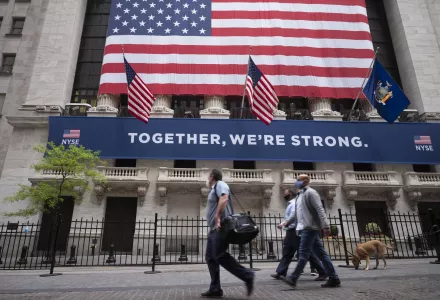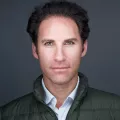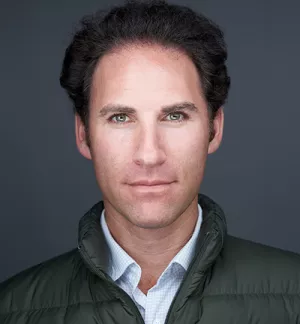
The outbreak of the COVID-19 pandemic has heightened concerns regarding the reversal of globalization. Many advocate for supply chain independence as well as tightened immigration and travel restrictions. The World Trade Organization (WTO) must now confront the largest decline in global trade since the Great Depression amid both the resignation of its Director-General, Robert Azevedo, and the ongoing crisis in the Appellate Body. Even as global central banks have provided enormous quantities of liquidity to their economies, the International Monetary Fund (IMF) struggles to do the same for many of the world’s poorest emerging and developing markets. With certain hardship ahead for the international financial system, it remains to be seen how the dollar can yield influence in a deglobalized world.
The dollar has maintained much of its prominence over the past decade, due to an active Federal Reserve leadership that emphasizes its stewardship over the global dollar system. Swap lines, designed to provide access to dollars to other global central banks in the Great Recession, were readily deployed at the onset of this crisis. Beyond these, the Fed pioneered its new Foreign and International Monetary Authorities (FIMA) tool for central banks with already large dollar reserves. Providing these central banks the capacity to borrow dollars against their Treasury holdings prevented fears of a selloff should major institutions have decided to sell their holdings to procure liquid cash. Yet, even with this support, the overarching political economy of the dollar finds itself in flux.
Of the world’s three major financial centers, New York, London, and Hong Kong, two are engaged in semi-existential questions regarding their futures, separate from COVID-19. London has faced the resurgent risk of a No-Deal Brexit, while Hong Kong’s autonomy has been threatened by a new National Security Law from the Mainland. Absent access to the Single Market, London may languish as its best bankers, traders, and firms flock to new homes in Amsterdam, Paris, Frankfurt, and Dublin. Those in Hong Kong may more eagerly flee to havens in Tokyo, Taipei, and Singapore to evade the long arm of the Communist Party. As the bedrock of the international financial system, the dollar will not be unaffected by these powerful shifts should they materialize.
There are also concerns that there may, in fact, be a new threat to the dollar that lies ahead: the death of the global trading system altogether. As the WTO has struggled to manage and address new threats, unilateral protectionism has reared its ugly head. Far from the halls of Washington, policymakers in Brussels, Beijing, and Tokyo have all deployed trade policy for their own economic ends, and all are eager to protect their critical supply chains in healthcare. The various forms of the dollar, whether in Southeast Asian FX reserves, in Chinese dollar-denominated bonds, or in Taiwanese insurance firms, are all derived from the dollar’s use in one form: trade.
An existential trade crisis has a deteriorating impact on the dollar. As these trade flows have been denominated in dollars, they have created powerful weapons for policymakers at the Treasury and State Department. More than any conventional weapons system, restricted dollar access has threatened regimes from Iran and North Korea to Russia and China. While an apocalyptic eclipse of trade in this manner may be compelling, there may be a different spectre awaiting the US that is more realistic and dire altogether. As much as the dollar may have helped the Treasury in the past, it may also be helping America’s enemies.
As the international financial architecture has been shaped both in the aftermath of World War II and the Cold War, its access has, in many ways, been politicized on both ends. Oligarchs and kleptocrats have used the same financial linkages between states to bolster their own fortunes that the financial warriors of the Treasury Department use to hunt global bad actors. The flows of cash have founded not only willing destinations in the remote Cayman Islands, Bermuda, and Monaco, but also the real estate markets of London, Miami, and New York. Middle Eastern sovereign wealth funds have plowed their people’s hard-earned reserves into prestige investments while practicing harsh austerity measures at home. In the end, the future may not be a rehashed and rehearsed version of the 1930s but merely an acceleration of global kleptocracy, particularly in the new London and Hong Kong of tomorrow.
Both financial centers have been defined by their connections to larger markets, namely, the European Single Market and Mainland China. In the case of the former, as a No-Deal Brexit threatens such access, European clients, like French banks, German corporates, and Dutch traders, may have no choice but to develop new hubs in the Single Market. As it struggles to remain competitive, London may ultimately embrace those spurned elsewhere, welcoming the ranks of Russian oligarchs, Chinese officials, and Middle Eastern autocrats. Once a major financial enforcer within the EU, the post-Brexit UK may ultimately be a sanctions evasions hotspot.
Meanwhile, Hong Kong’s fate appears stitched ever closer to the Mainland, as it links itself to other major Chinese cities, like Guangzhou and Shenzhen. Even for those firms seeking to exit the city to other destinations, no other city in Asia replicates the unique set of benefits that Hong Kong offers, particularly the suite of options to access Chinese markets. Already, leading Chinese firms, like Alibaba and Netease, have flocked to the city’s exchange, as New York has heightened scrutiny and auditing requirements. Relative to other centers, Hong Kong’s liberalized company formation rules often benefited its own denizens as much as it did middlemen for North Korea’s own evasion networks. Under a politicized administration by Beijing, this may well be the future, not only for North Korea but also for nations more generally ejected from the dollar.
As such, the end result may be a world of global finance that lies outside the reach of the Treasury and State Department, even if it remains denominated in dollars; however, that seems unlikely long-term. The regional segmentation of financial centers may accelerate America’s enemies finding alternatives to the dollar. Though sanctions authorities may seek to take on new actors in these hubs, their jobs will be rendered more difficult by reduced transparency and political cooperation. Like the current threat to target banks doing business with enforcers of China’s National Security Law in Hong Kong, new sanctions may be more difficult to craft if their targets are not reliant on the dollar; therefore, they will have to carry greater financial risks than their predecessors. The dollar is undoubtedly a potent weapon for now, but deglobalization and an international trend of turning inward could threaten its reserve status long-term.
Statements and views expressed in this commentary are solely those of the author and do not imply endorsement by Harvard University, Harvard Kennedy School, or the Belfer Center for Science and International Affairs.
Michael B. Greenwald is Director at Tiedemann Advisors. He is a fellow at Harvard Kennedy School's Belfer Center for Science and International Affairs. He is also a senior adviser to Atlantic Council President and Chief Executive Officer Frederick Kempe. From 2015-2017, Greenwald served as the US Treasury attaché to Qatar and Kuwait.
Greenwald, Michael. “ What the Crumbling of Financial Centers Means for the Dollar.” Belfer Center for Science and International Affairs, Harvard Kennedy School, June 8, 2020


